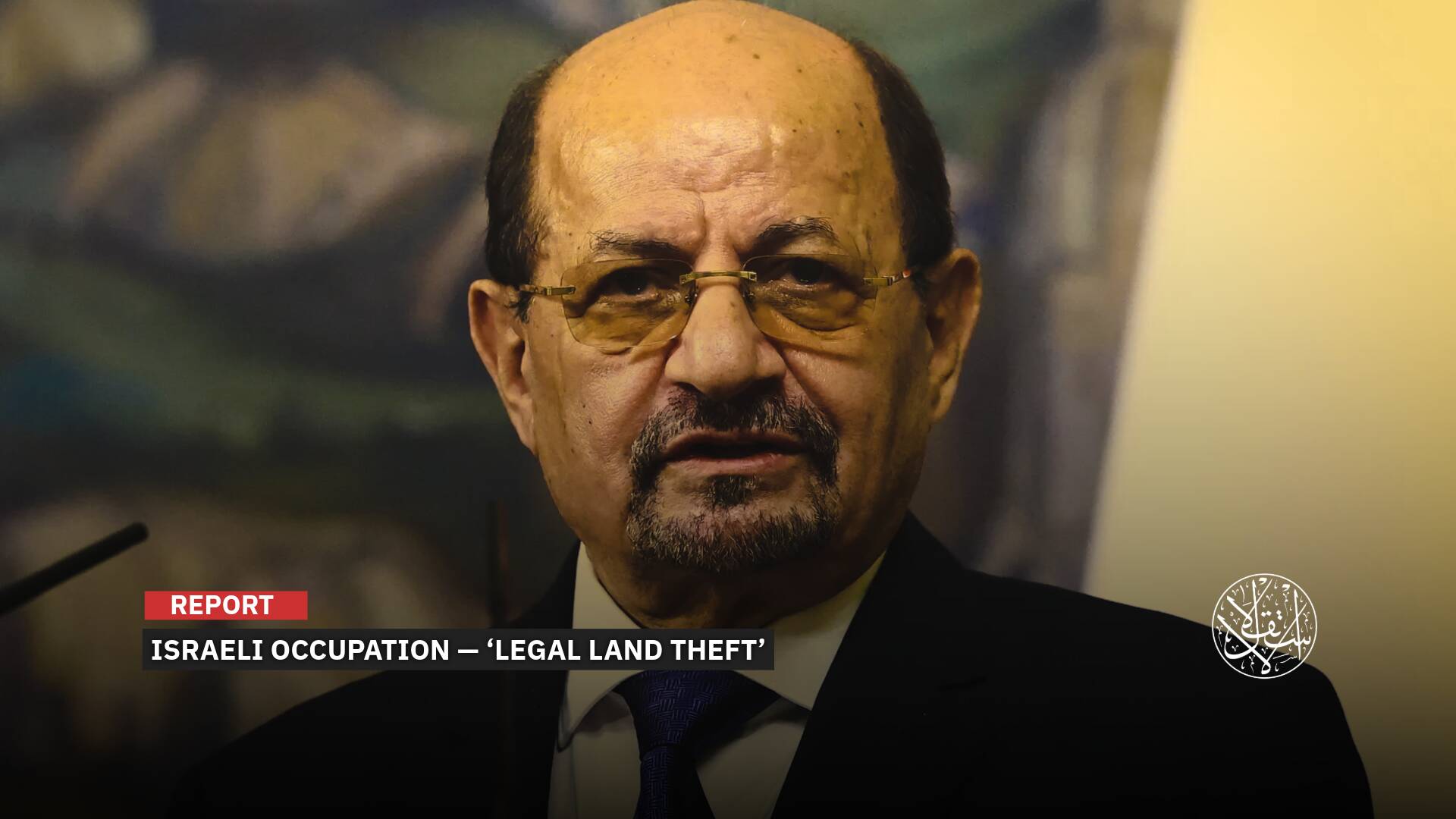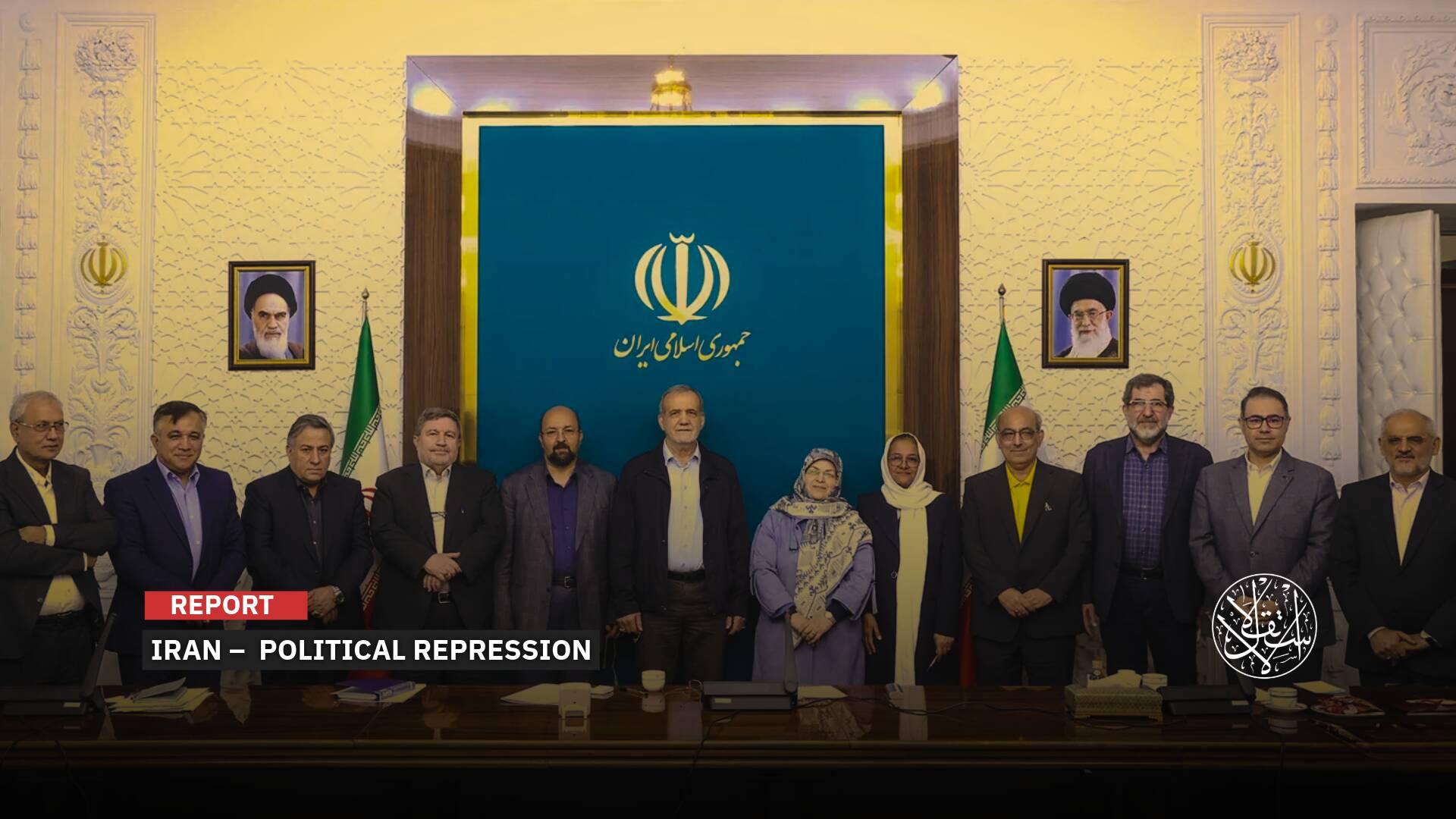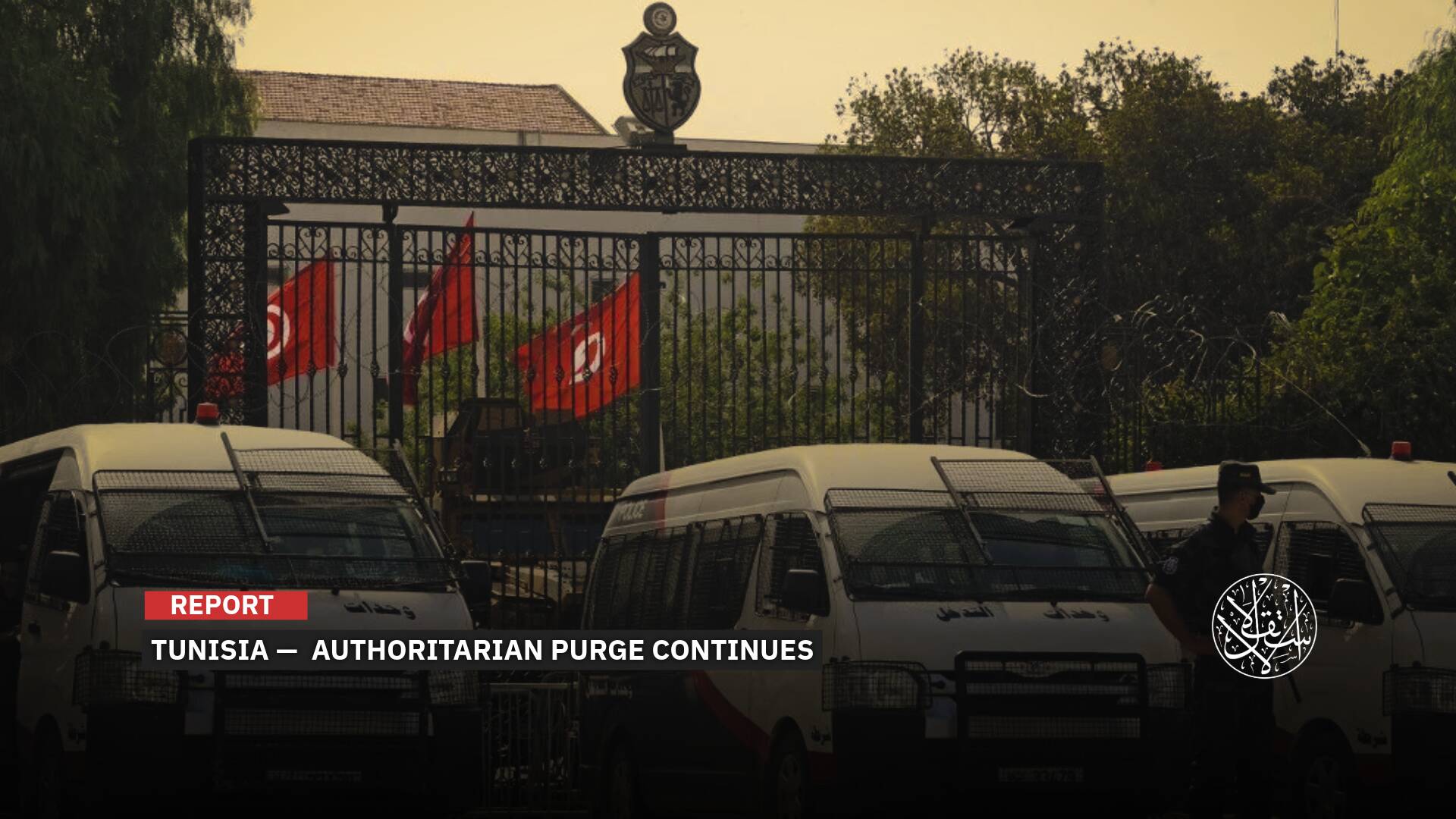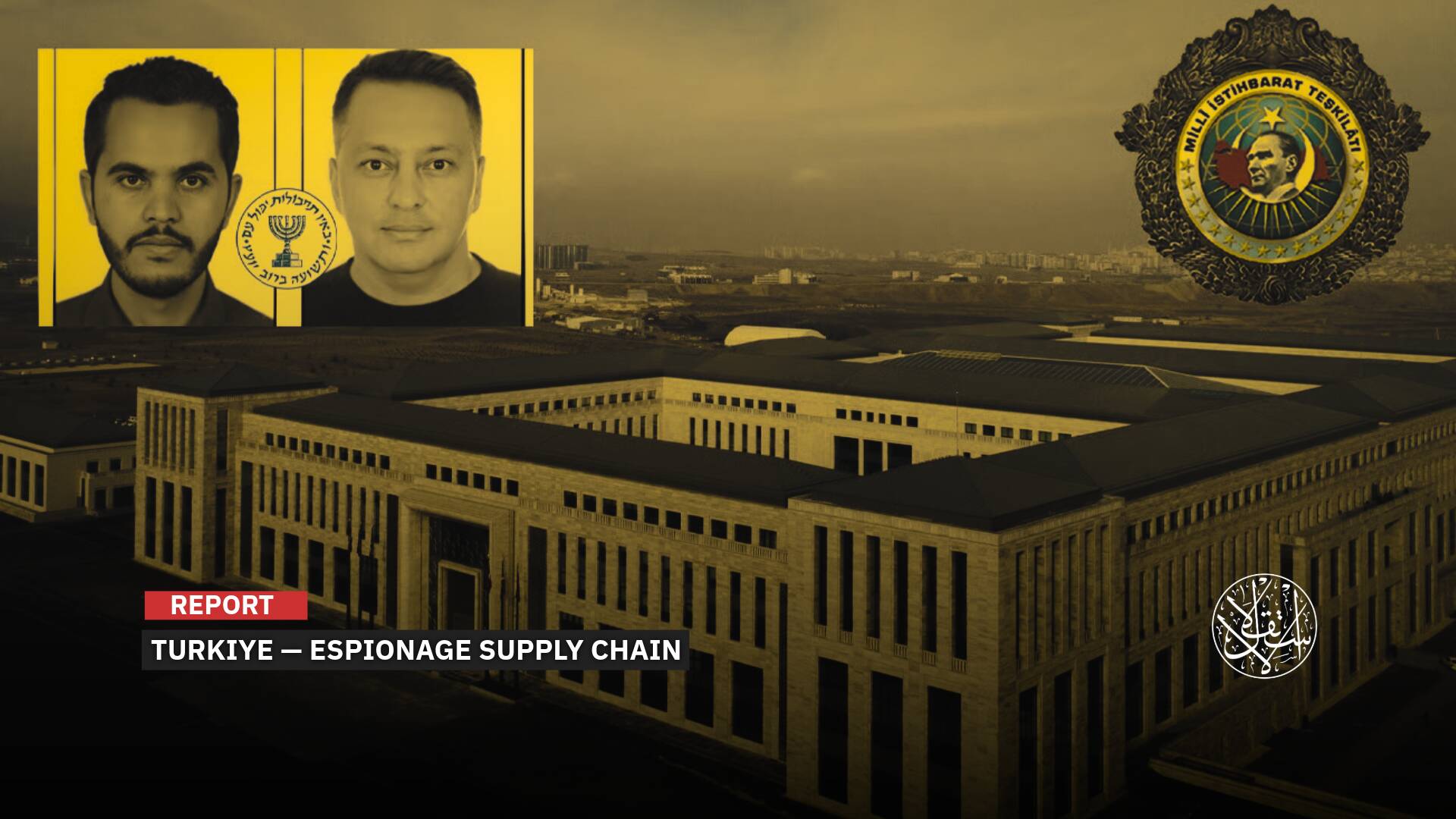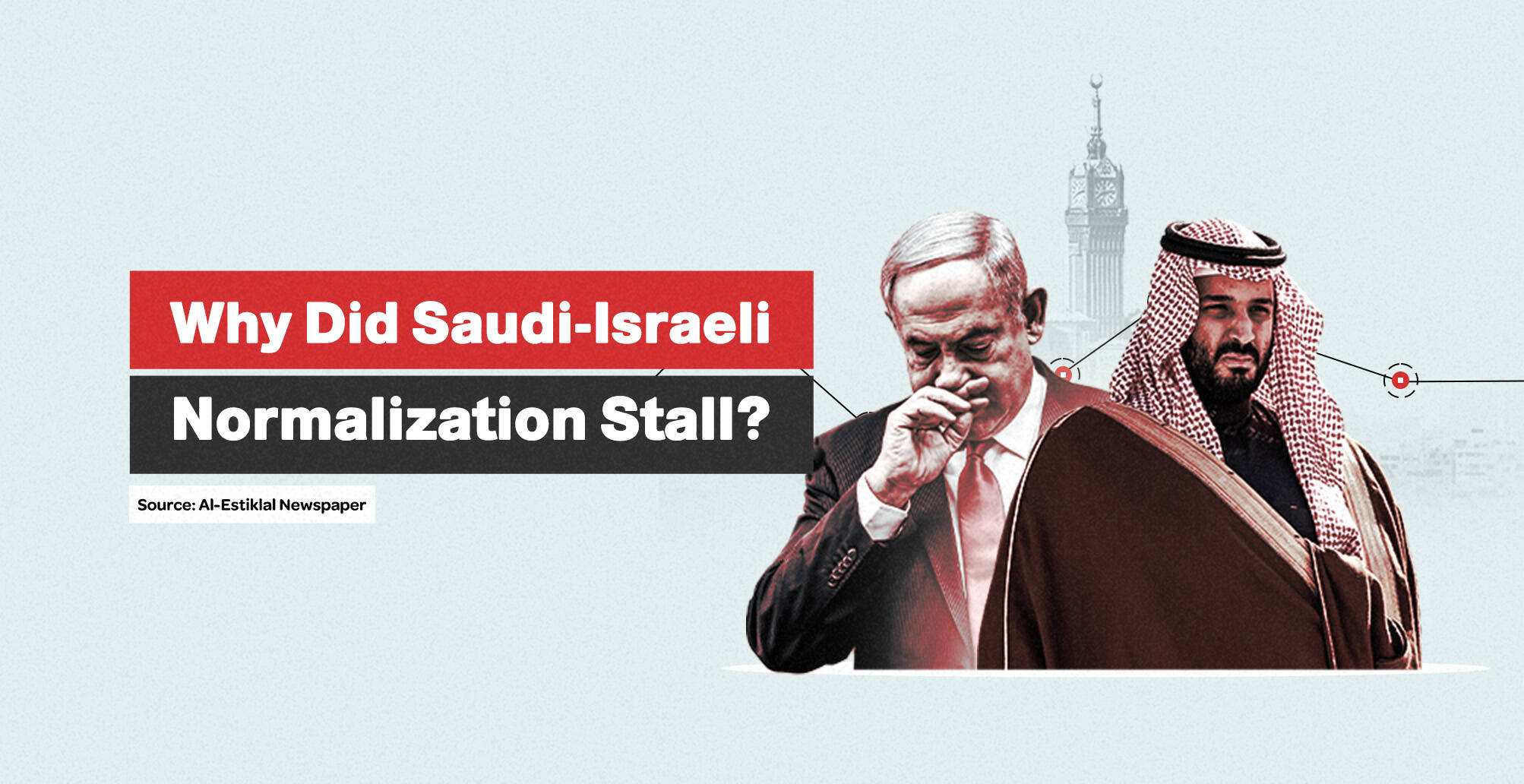What’s Coming after Saied's Coup Against Ghannouchi and Mechichi ?

Amidst an ambiguous atmosphere; the burning of the headquarters of the Islamic “Ennahdha” party, a disappeared prime minister in his home, and a speaker of parliament recovering from Corona, Tunisian President Kais Saeid went out surrounded by generals on July 25, 2021, to announce a “constitutional” coup in form and implementation.
The president’s threat to use weapons, the television broadcasting patriotic songs glorifying the army, the militarization of television and government buildings, the closure of Al Jazeera’s office, and the silence of liberal and leftist parties complete a picture similar to what Egypt witnessed in the 2013 coup.
Saied’s move came within the struggles of the “three presidencies” (the presidency, the government, and parliament), as he disrupted the work of Parliament and the government, justifying the activation of Article 80 of the Constitution, claiming that they were measures of “a state of imminent danger threatening the entity of the homeland, the security and independence of the country.”
But the Tunisian president misused the constitution in favor of his complete domination of all authorities, to become the first civilian president and constitutional law professor to stage a coup, fearing that the army and regional and international forces hostile to the Arab Spring would exploit him to get rid of “Saied” himself.
In addition, Saied's decisions will put him in conflict with Parliament Speaker Rachid Ghannouchi and his "Ennahdha" movement, with Prime Minister Hicham Mechichi and the forces of the 2011 revolution. This may push deputies to have no more confidence in him as stipulated by the Constitution in Article No. 88. This may enter the country in a dark tunnel.
In the 2014 constitution, Tunisia adopted a participatory system characterized by the distribution of influence between the presidents of the republic and the government, to achieve balance and limit the president’s dominance of power, but Saied violated it by seizing all powers.

Three Scenarios
With the opposition and supporters of the coup taking to the street, the sit-in of the Speaker and his deputies at the gates of Parliament, the division of parties and the support of “civilian” currents for the coup, similar to the case of Egypt 2013, everyone is waiting for the “moment of decisiveness.”
It seems that the decision will be according to three scenarios:
First, the coup consolidated its gains by arresting opponents, led by the Speakers of Parliament and the government, and a military and security crackdown on the Egyptian way.
This may enhance the support of the leftist "Tunisian General Labor Union", the largest force capable of mobilizing for the president's coup, despite his declaration in a statement on July 26, 2021, "his keenness on the need to adhere to constitutional legitimacy", and setting a time for exceptional measures.
The second is that Saied was forced to retreat and withdraw his decisions, in the event of the people’s revolution again and taking to the streets, as happened in 2011, and the army’s bias towards the people, not the president, especially since major parties such as “Nidaa Tounes” opposed the coup.
Third, the exceptional measures remain for a month (as stipulated in the constitution) or extended, then call for new general elections and a new parliament, in the hope of removing “Ennahdha” for the third time since the 2011 revolution.

Articles 80 and 88
It can be said that Tunisia's fate is suspended between Articles 80 and 88 of the Constitution.
Although the Tunisian president based his own interpretation of Article 80 allowing him to take “extraordinary measures” and freeze parliament and the government, the opposition and parliamentarians who revoked their immunity have the power to dismiss this decision in Article 88 of the same constitution.
Article 80 stipulates that the president shall take measures after consulting the head of government and the speaker of the Assembly of People's Representatives and informing the president of the Constitutional Court."
But what happened is that the president dismissed the prime minister and froze the parliament speaker and did not consult them, claiming that the constitution forbids the dissolution of parliament, so he decided to freeze it !
Interestingly, the Tunisian Presidency's Facebook account confirmed that the president had "consulted both the prime minister and the speaker of the Assembly of People's Representatives" in the decisions he took, as if they had agreed to "dismiss them and freeze their work!"
The president also violated the second paragraph of Article 80, which is: “The Assembly of the Representatives of the People (Parliament) is considered to be in permanent session throughout this period, and in this case the President of the Republic may not dissolve the Assembly of the Representatives of the People.”
Constitutional Stalemate
By taking risks, violating the constitution and interpreting Article 80, ” the President did not pay attention to the possibility that the House of Representatives will apply Article 88 of the constitution against him, and impeach him for violating the constitution.
Article 88 states that "a majority of the members of the Assembly of the People's Representatives may initiate a justified regulation to relieve the President of the Republic for a grave violation of the Constitution."
“The council approves it by a two-thirds majority of its members, and in this case, the referral is made to the Constitutional Court for a decision on that with a two-thirds majority of its members.”
This means that it is in the hands of Parliament - by a two-thirds majority - to dismiss the president, especially after the second bloc in Parliament (Qalb Tounes), and other parties announced their rejection of Saied's coup as a "grave breach" of the constitution.
On January 26, 2021, when Said refused to accept the swearing-in of some ministers, Qalb Tounes deputy Iyadh al-Loumi threatened that the procedures for removing Saied would be initiated by activating Chapter 88 of the constitution.
There is an impasse that may prevent Parliament from impeaching Saied, which is the absence of a "constitutional court" that has not yet been formed due to the crisis between the president and parliament.
Paragraph 3 of Article 80 states that “30 days after the entry into force of these measures, the Constitutional Court is entrusted at the request of the Speaker of the House of Representatives or 30 of its members to decide whether or not the exceptional situation should continue.”
The same chapter indicates in its last paragraph that “the court declares its decision publicly within a maximum deadline of 15 days, and the work of these measures shall be terminated when the reasons for them cease to exist.”
However, what hinders the implementation of these paragraphs is the absence of the Constitutional Court, to which the interpretation of constitutional texts is due, which President Saied is aware of and may have used to his advantage.
The Constitutional Court is among the main differences between the President and Parliament, and they stand at opposing sides in the interpretation of the constitutional text regarding its status.
Tunisia's 2014 constitution stipulates that the court must be established within a maximum period of one year from the date of the legislative elections that were held in the same year.
The court consists of 12 members, elected by parliament by a two-thirds majority, which hindered the selection of court candidates, and one member won the required majority, and the rest of the candidates failed.
On May 4, 2021, Tunisia's parliament approved a draft amendment to the Constitutional Court law reducing the two-thirds majority required to recommend candidates, to only three-fifths.
The absence of the court caused several previous legal and constitutional impasses, including the government reshuffle that has been inoperative since January 2021, and the dispute over the president's leadership of the armed and security forces together.
Emirates and the Coup
After a series of tweets about Tunisia and the attack on the "Brotherhood", former Dubai Deputy Police Chief Dhahi Khalfan exposed the role of the UAE in the Tunisian coup.
On his Twitter account on July 22, 2021, he spoke about a "new blow to the Brotherhood," which proves the UAE's involvement in the Tunisian coup.
In an interview with Turkish TV on July 26, 2021, Ghannouchi publicly accused the UAE media of being "behind the push for this coup and targeting the Ennahdha movement," and said: "The parties that support what is happening in Tunisia are clearly known ."
Human rights activists pointed to the role of the UAE in igniting the Tunisian crisis, in preparation for the coup, through security accounts on social media and raising several hashtags against the will of the Tunisian people saying that Saied is "just a front for a military coup that was arranged in coordination between France and the UAE."
The UAE's efforts to abort the Tunisian revolution, as part of its plan to thwart the Arab Spring as a whole, passed through several important stages.
In contrast to the UAE media’s warm welcome to the Tunisian coup, several pages loyal to the Emirati electronic flies support the coup and attack “Ennahdha” and the “Muslim Brotherhood”, including the “Turkish Affairs” page.
The most prominent of these is a page loyal to the dismissed leader of the Fatah movement, Muhammad Dahlan, Ibn Zayed’s advisor, which directs “sponsoring” funded publications directed to the Tunisian people, inciting what is happening and calling on the citizens of Gaza to expel what they called “the darkness.”
Undermining the Revolution
On December 8, 2015, Middle East Eye revealed an "Emirati plan to strike stability in Tunisia '', among which was the "permanent disposal of the Ennahdha movement", after it came first in the legislative and local elections.
On June 1, 2017, a leaked document from the Emirates Policy Center was published, entitled “The Proposed Emirati Strategy towards Tunisia”, which revealed an Emirati plan to overthrow the "Ennahdha" movement and undermine the Tunisian revolution.
The leaks included the phrases: "Agitate the situation in Tunisia, and we support you financially and support you in the media. This is our chance now to bring down the Muslim Brotherhood in Tunisia!", which was followed by Representative Abir Moussi, the most prominent person accused by the Tunisians of financing her by the UAE.
On December 13, 2018, British writer David Hurst warned, in an article on the Middle East Eye website, that "Tunisia is facing the risk of a possible coup with Gulf and Egyptian support, and the complicity of internal parties" to get rid of the Ennahdha party.
Hearst said in his article: "The presence of a peaceful Islamic movement represented by the Ennahdha movement in Tunisia is considered by some dictatorships in the Gulf and Egypt as a thorn in their side, and seeks to eliminate the fragile democratic experiment there."
In 2019, the former Tunisian president, Moncef Marzouki, exposed the UAE's role in pumping huge funds to thwart the Tunisian revolution, similar to what it did in Egypt, and called on the people to be vigilant and not allow these schemes to succeed.
The most important and final warning of Tunisia's coup, revealed by the British "Middle East Eye" website, on May 24, 2021, through a photo of a leaked document, which it described as "extremely secret".
The document revealed a plan that was being prepared by Saied's senior advisors, in order to declare a coup against the current elected government and the House of Representatives.
According to the plan, which dates back to May 13, 2021, the president's political opponents were to be invited to the presidential palace, detained, and a number of other senior politicians and businessmen were arrested.
At that time, the "Union of Presidential Security Personnel and Officials" responded in an official statement, denying the "coup document" published by "Middle East Eye", saying that "the era of coups and dictatorship is over !"
After the actual coup on July 25, 2021, "Middle East Eye" reconfirmed its document and said that "the decisions of the Tunisian president went beyond the leaked May plan."
It said: "Saied has taken unconstitutional steps such as dismissing the prime minister, suspending parliament and lifting the immunity of its members."
According to the British website, the Tunisian president was forced to admit that he had received the coup message, but he denied that he had any intention of what was called at the time a "constitutional coup."
Middle East Eye commented, "We understand that the plan to seize power collapsed at that time when Said failed to obtain the support of the Tunisian security forces, who issued a statement saying that they would not participate in the political process."
Imitating Sisi
On January 23, 2016, the first real Egyptian intervention in Tunisia's affairs was when the head of the Egyptian regime, Abdel Fattah al-Sisi, sent a message to the Tunisian people, telling them: "Preserve your country... do not waste your country."

At that time, Sisi’s message raised questions about Egyptian concern about the repetition of the model of the Arab Spring revolutions that began in Tunisia and then Egypt, and the intention to put an end to the “Ennahdha” movement’s control of the scene in Tunisia.
When Sisi invited the Tunisian president to Cairo on April 9, 2021 for a 3-day official visit, many Tunisian parties and forces objected to this visit, due to Egypt’s interference in Tunisia’s affairs and its incitement by the president against an elected faction (Ennahdha).
That is why Euronews and Reuters on July 26, 2021 accused the Tunisian president that, in his coup, he "imitated Sisi".
Activists have accused individuals funded by the UAE (similar to the Tamarod movement) of following the same tactics as Sisi's coup in Egypt in Tunisia in preparation for President Said's coup.
The day of the celebration of the Republic, July 25, 2021, was turned into a day for a similar “rebellion” movement against democracy, and the headquarters of the Islamic Party were burned, to show that there was a popular revolution against the “Brotherhood.”
This was followed by Egyptian newspapers, run by the intelligence "remote", welcoming the coup and publishing headlines hostile to Ennahda and the Brotherhood.
The government newspaper, Al-Ahram, said: "supporters of the Brotherhood's Ennahdha movement attack Tunisian citizens with stones in front of the parliament building."
Al-Watan newspaper, owned by the (United) Intelligence Company, wrote: "The president and the people are rising up against the Brotherhood in Tunisia."
The "Cairo 24" intelligence website claimed that "leaders of the Ennahdha movement are fleeing abroad."
Meanwhile, the Egyptian army's Mobtada website published a file entitled: "Save Tunisia !", and "Al-Masry Al-Youm" newspaper spoke about "Kais Saied, the rare bird that liberated Tunisia from the Brotherhood ! "




